This essay is adapted from Mark Mazower’s Governing the World: The History of an Idea, coming this month from the Penguin Press.
Spinelli’s Dream
Baked by the Mediterranean sun beating down on the Tyrrhenian Sea, the volcanic islets of Santo Stefano and Ventotene lie some sixty miles off the Italian coast. Each is a few square miles of parched, treeless and windswept rock, inhabited since Roman times chiefly by lizards, seagulls and political prisoners. Santo Stefano is the smaller of the two, dominated even now by the weed-infested ruins of the extraordinary Bourbon prison built on Benthamite principles at the end of the eighteenth century. The slightly larger island, Ventotene, was the administrative headquarters of the prison complex under fascism, and it was there, with nothing but the sinister rock of Santo Stefano to disrupt the monotony of the horizon, that a small group of Italian political prisoners came together in the early years of World War II to diagnose the source of Europe’s ills and propose a better future. What emerged in the summer of 1941 would become known as the Ventotene Manifesto. Its main author, a young activist named Altiero Spinelli, would become a legendary figure in the pantheon of postwar Europeanism, a leading federalist and advocate of integration who, until his death in 1986, played a prominent role in the drive toward European union.
The starting point for the manifesto was naturally the failure of the League of Nations and the rise of fascism and Nazism. The text denounced both the league’s naïve confidence in international law and fascism’s idolatry of the state, and went on to argue that the national state itself was now a threat to the peace: Europe required not another League of Nations but full-blown federation. The Communists were criticized for preaching the virtues of class conflict, yet although Spinelli had recently broken with the party, what he offered was in many ways a kindred vision: “progressive forces” who believed in federation would act in the name of the “masses,” but they would be that minority of “serious internationalists” capable of acting decisively in a Leninist fashion to provide guidance in the critical moments when fascism and Nazism crumbled, moments “during which the popular masses are anxiously awaiting a new message.” The struggle was not going to be against this or that ideological current; rather, it would be against those “reactionary forces” that aimed to restore the power of the national state. The task was to make federation work, and if individual states wanted to go their own way, they would have to be compelled to see the truth. Only a European federation had the answers to the problems of mixed ethnicity and geography that had brought war to the continent, and twice, through Europe, to the world. Instead of spreading conflict, Europe should unify itself, even as humankind awaited “the more distant future when the political unity of the entire globe becomes a possibility.”
The Ventotene Manifesto lies more than seventy years in the past, yet what Spinelli would think about the present crisis in Europe is not unfathomable. Early on, he recognized that the Common Market was becoming a powerful force, and he opted to work through it rather than around it. He never really liked its dependence on intergovernmental cooperation, and he always sought to strengthen the more genuinely supranational institutions—the European Commission and the European Parliament—over the Council of Ministers. On the other hand, he certainly approved of the idea that economic union might lead to political union and complained only about the length of time this was taking. Nor would he have minded the elite character of the drive to further integration, because he was convinced that ultimately the continent’s peoples would come to appreciate its blessings.
Faithful to the means while envisaging quite different ends, today’s European Union exists in a deeply ambiguous relationship to the principles of Ventotene. Integration has been driven by a bureaucratic elite that continues to see national sovereignty as an obstacle to be overcome, but this elite has largely lost sight of the principles of social solidarity and human dignity that Spinelli wished to resurrect. From the perspective of Ventotene, federation was an instrument that would allow the struggle against inequality and poverty to be won. A form of managed capitalism would place limits on the market and property ownership without eradicating them completely; there would be nationalization of key industries, land reform and worker cooperatives. The result would be not communism but the realization of a simpler, more manageable and perhaps nobler dream: a world in which economic forces would be guided and controlled by human beings rather than dominating them.
This is the world we have lost, in a double sense. In the first place, the sublime confidence and optimism in political action and mobilization for a better future that existed on Ventotene in 1941 has vanished. In addition, the Ventotene ideals, which basically underpinned the managed capitalism of the postwar miracle in Western Europe from 1945 to 1975, were repudiated following the turn to neoliberalism in the late 1970s and abandoned at the European level with the embrace of global finance during the 1990s. From the perspective of early twentieth-century Europe, the sentiments of 1941 represent a regime every bit as ancien as the decaying and abandoned Bourbon panopticon on the island of Santo Stefano.
* * *
The turning point can be charted fairly precisely. The 1960s and ’70s were a time of prosperity in Western Europe, with trade and growth outstripping that of the United States. The European Community carapace overlaid powerful and largely autonomous nation-states buffered both from the outside world and from one another but gradually brought together through the horizontal integration of economic complementarities. For the European Community’s bureaucracy, however, always dreaming of driving forward to more perfect union, the 1960s and ’70s were a period of institutional stagnation. Then in the early 1980s, France’s finance minister, Jacques Delors, witnessed at first hand—through the travails of the Mitterrand government—the impossibility of building socialism in one country; as president of the European Commission from 1985 to 1995, he resolved to shore up social solidarity at the continental level while accelerating market integration. With another senior French civil servant, the economist Michel Camdessus, moving to run the IMF in 1987, there was a close interconnection between Delors’s integration drive in Europe and the emergence of a rules-bound liberalization of international capital flows. Equally instrumental in this process was a third French mandarin, Henri Chavranski, who oversaw the drafting of the Code of Liberalization for the discreetly influential Organization for Economic Cooperation and Development (OECD). What one scholar has dubbed “the Paris consensus”—in contrast to the much more loudly self-advertised Washington version—opened up capital markets across the European Union and the world, a move that was perhaps the key economic shift in the globalization of the 1990s. Delors gambled that Europe could enjoy both capital liberalization and enhanced welfare. He would turn out to be wrong.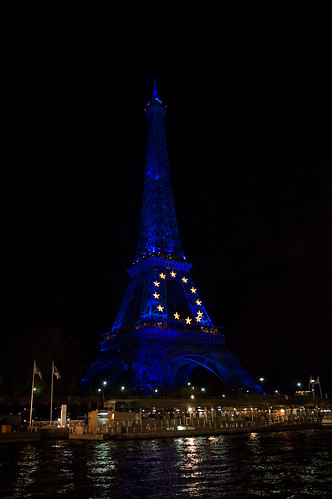
The high points of the Delors years were the Single European Act of 1986 and the Maastricht Treaty of 1992. With the ending of the cold war in particular, the membership of the European Union doubled in a little over a decade, and indeed the peaceful incorporation of much of Eastern Europe was a historic achievement. But the success was a Pyrrhic one, replete with unintended consequences as expansion—so desirable politically—complicated things. Redistribution was built in through help for poor regions, but the EU did not function as any kind of welfare guarantor for the poor and disadvantaged in general: constrained by a very small tax-raising capacity, “social Europe” always took second place to the higher goal of fiscal convergence and monetary union. Integration thus brought a shift away from redistribution toward the control of inflation as well as capital and labor mobility. Signed in February 1992, the Maastricht Treaty gestured decisively not toward a Europe of welfare and regulated capital, but toward an intensification of the single European market and an acceleration of trade and financial flows through the creation of a common currency.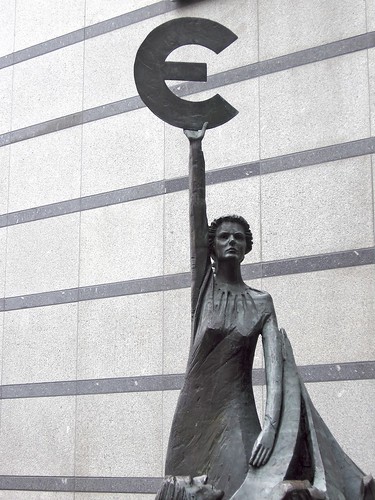
At the same time, the idea of a citizens’ Europe with strong representative institutions failed to materialize as both the European Parliament and its national equivalents were marginalized. This was not simply because of the general mistrust of parliaments that became evident everywhere from the 1970s onward; it was also because enlargement necessitated increased majority voting, which meant that member states often signed up—were obliged to sign up—for policies they had not wanted and had no intention of implementing. For this very reason, monetary unification was made conditional upon national governments handing over much of their discretionary fiscal power. The so-called Stability and Growth Pact, with its strict limits on deficit spending and debt, locked in national legislatures, at least in theory. Electorates registered some disquiet when they were consulted, but in most cases they were not. Even so, before 2010 the rules of the pact were not properly enforced; by then, almost every country in the EU, with the exception of Luxembourg and the Scandinavians, had been in breach at some point, and this level of defiance cushioned the impact of what was an unnecessarily rigid system. And because the penalties were mild, monetary and fiscal policy was looser than it would otherwise have been and so encountered little popular opposition.
However, if legislators were not driving integration, who was? Here is where the European Union really has pioneered a new kind of internationalism. One key agent has been the European Court of Justice, an oddly neglected body and far more powerful than any world equivalent precisely because the national courts of member states (with the important exception of the Germans, who have preferred their own supreme constitutional court as the ultimate arbiter) have generally been willing to defer to its judgments. The court started out by establishing that European law could not be overridden by national law, and then went on to make a series of far-reaching interventions in the realm of social policy and industrial relations that mostly went unnoticed by the broader public. Supported by the legal profession, the court came as close as any body to establishing “a new legal order of international law”—binding, pervasive, beyond political discretion—in a world that had otherwise given up on the possibility of such a forum.
Even more powerful and pervasive than the court, but more nebulous and still less visible, have been the regulators. According to a process known to the cognoscenti as “comitology”—“an indispensable tool for interest groups and a nightmare for European studies students” is how one Belgian politician describes it—Brussels lawmakers passed general administrative laws whose details were then fleshed out by small committees of regulators and national experts. Opaque and unrepresentative, hundreds of such committees have operated in the shadows, outside the formal oversight of the European Parliament or even the Council of Ministers. The Treaty of Lisbon in 2009 was intended to rebut increasingly loud criticisms of the undemocratic character of this system. But although the treaty pledged explicitly to revitalize “the democratic life of the Union,” it has failed to do so. Today comitology flourishes, its procedures more arcane than ever, generating administrative laws that remain virtually impossible to revise or scrap. In short, Europe empowered regulators and rule-makers over citizens and their legislators, blurring the boundaries between the public good and private interest—and in the process, as the legal scholar Joseph Weiler puts it, rendering “the nation and state hollow and its institutions meaningless.”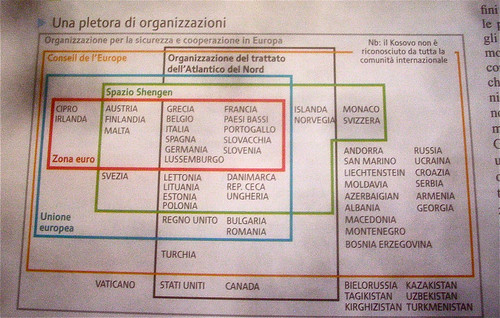
The real costs of this model of international integration became visible with startling speed once the financial collapse of 2008–09 metamorphosed into the sovereign debt crisis of 2010. As the fairy tale ended, the viability of the euro suddenly became uncertain. Keynesians argued that expansionary policies could probably have headed off the worst of the crisis, because the overall sums required to deal with southern European debt were far smaller than had been at stake, say, at the time of the implementation of the Marshall Plan in 1947. But we will never know if they were right, because such policies were precluded by eurozone rules and German political resistance. Instead, the countries in the eye of the storm have been forced into austerity: national income has contracted rapidly, wages have been slashed, unemployment has soared (especially among the young), and the welfare achievements of previous decades have been rolled back.
There has been only one significant exception to the ongoing marginalization of national legislatures and their political leaders: the German Bundestag. As for the German chancellor, Angela Merkel, she has played a far more decisive role than any of the leading European officials except the head of the European Central Bank; in contrast, the European Commission president, José Barroso, and the president of the European Council, Herman van Rompuy, have been sidelined. But not even Germany has controlled the process. For in the preceding years, as the crisis demonstrated, enormous power had been handed over not only to European civil servants operating with little accountability or transparency, but to even less accountable groups outside the European bureaucracy altogether.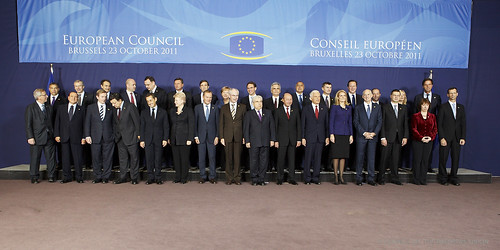
As politicians negotiated throughout 2010–11 to keep Greece inside the euro, the constraint they all faced was the need to avert a “credit event”—the determination of which depended not on them nor on any elected officials, but on the deliberations of a committee of the International Swaps and Derivatives Association composed mostly of bankers. These overseers are supposed to set aside conflicts of interest that might be generated by their own firms’ positions and speak for the industry as a whole, but the lack of transparency in the process makes it impossible to know. Immense power was also granted to a few American credit-rating agencies, latecomers to the business of global risk evaluation (and not notably successful at it). Neither grouping had automatically acquired this power; they had won it through lobbying and a series of political decisions in the preceding years that had allowed capital markets largely to regulate themselves.
Only in 2008 did Europe’s political class start to acknowledge, in the words of the German president, Horst Köhler, that the financial markets were “a monster that must be tamed.” Just how jerry-rigged the entire structure was has begun to emerge through the findings of a recent Financial Services Authority investigation that a number of major banks colluded over a period of years in fixing the calculation of the so-called London interbank offered rate (Libor), the basic interest rate upon which an impressive $350 trillion of financial instruments depend. The lack of interest initially taken in this extraordinary story outside the pages of the Financial Times is instructive. If the acronyms of modern financial life are impenetrable, the issues technically complex, the terminology euphemistic and the sums involved unimaginable, this is not accidental: such factors have functioned to enhance the mystique of the “market” in whose name these developments occurred, and to obscure its imperfections and asymmetrical opportunities.
Yet even as these elements became better understood, the crisis revealed the ability of financial markets to preserve private profits while socializing their liabilities. That socialization occurred on a breathtaking scale. Government bailouts to the financial sector in 2008–09 were so large that they left many countries’ debt/GDP ratios 20 to 25 percent higher, on average, than they would have otherwise been. The paradox was that while governments were thereby weakened, and in many cases slid into crisis, market participants took the assistance while moving rapidly and successfully to prevent any real regulatory challenge. The politicians denounced the irresponsibility of the bankers but fell short of an effective response. On the contrary, unfettered by a global financial transaction tax or any other significant new regulatory pressures, and helped by cheap money made available by the central banks (so-called quantitative easing, an extremely crude form of pump priming that represented the only form of stimulus left to an age that no longer believed in planning), the derivatives market at the root of the problem has continued to grow, while the financial sector has pushed ahead with many of the novel and uncollateralized instruments that contributed to the crisis. Alternately cajoling and threatening, its leaders have shown a much greater capacity for collective action, self-assertion and self-preservation than the leaders of Europe’s states.
Spinelli’s vision of an economy run in the service of human needs has been turned on its head. If the human needs being served by the euro—the currency with which the very project of ever closer union has come to be identified—are not primarily those of its citizens, this is not surprising, because they have had less say in the outcome than the bankers. In the war years on Ventotene, finance capital was seen as a force to be controlled and checked, and the speculators were regarded as at least partially responsible for the slump of the 1930s. By contrast, integration through financial liberalization and monetary union has produced wealth that European democracies cannot afford and problems they cannot answer, limiting their power and undermining the credibility of their institutions. No longer the fount either of political liberty (as nineteenth-century liberals once hoped) or of social welfare, European internationalism has moved a long way from its origins.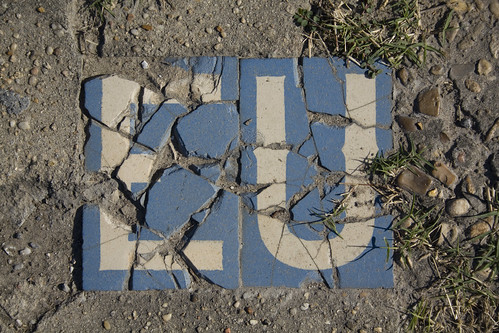
The Mystique of Global Governance
Europe has rarely been just about Europe. As Spinelli’s manifesto testified, it has also often stood—sometimes formally, sometimes implicitly—for a much broader normative ideal, most recently when George W. Bush’s abrasive approach to politics made it peculiarly tempting to look across the Atlantic to the EU, with its fledgling common currency and its “European model of society,” as an alternative. In 2004 the economist Jeremy Rifkin declared that “Europe’s vision of the future is quietly eclipsing the American dream.” The following year, the historian Tony Judt concluded his new book Postwar by describing a continental nirvana in which people opted to pay higher taxes in return for “free or nearly free medical services, early retirement and a prodigious range of social and public services.” Writing in 2009, on the very eve of the sovereign debt crisis, the political commentator Steven Hill went even further, describing the continent as “the new City on the Hill.”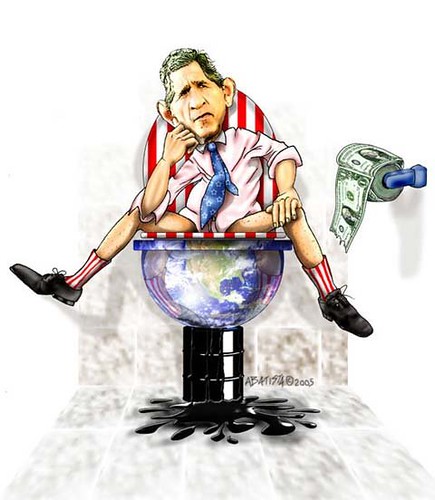
It was in these years that some American commentators hailed a sophisticated new form of internationalism emerging globally that was largely based on the European experience. They wrote enthusiastically about a “New World Order” that looked suspiciously like the European Union writ large, a world in which formal supranational institutions played a relatively minor role and loose, businesslike networks of middle-level government officials from different countries—often mingling with regulators and industry experts—got things done. In this world, there seemed to be no evident conflict and rather little formality. Most of what went on happened behind closed doors, humdrum and technical but ultimately of real consequence. It was a quiet world of international standard-setting, Internet governance and spreading human rights. States remained important, but through the actions of bureaucrats instead of legislators or politicians. The era of large international institutions, formal treaties and perhaps of diplomats too seemed to be passing.
As a description of what was occurring not merely within Europe but globally, the picture was compelling: old-fashioned political scientists had mostly missed the fact that international affairs were becoming less focused on large, formalized institutions and more dependent upon informal clusters and horizontal interagency relationships that blurred the boundaries between officialdom, corporations and NGOs. This perspective implied—as a leading theorist of this process argued more explicitly later—a relatively minor role for behemoths such as the United Nations:
There is an entire infrastructure of global governance that is not at the UN, or at the World Bank, or at the International Monetary Fund or at the World Trade Organization. It is the networks of antitrust officials, of police officials, prosecutors, financial regulators, intelligence operatives, militaries, judges, and even, although lagging behind, legislators.
This kind of description, however, sounds rather like the one regulators and networkers would presumably like to give of themselves: earnest and professional, guided by considerations of something dull but respectable called “best practice.” Efficiency and expertise rule. One would scarcely guess that anything so uncouth as political power could influence the discussions over the conference table. There is no fighting here, no blood, not even any really sharp clashes of opinion. In short, this is a rosy picture of a world governed, in legal scholar Martti Koskenniemi’s words, by the “Supreme Tribunal of a managerial world.”
It is an old idea, this thought that all would be well if only the politicians could be kept at arm’s length and the people who actually know something allowed to get on with things. Before World War I, scientists, engineers, doctors and bibliographers all embraced internationalism for this reason: it gave them a grand mission and appealed to their sense of the nobility of their calling. Yet experts are not always capable of standing above the fray of politics, and they are as prone to see themselves as representing their own governments as anyone else. Whether or not expertise in the abstract is political is not the question here; it is what kind of political order this claim of technical neutrality is being advanced to support. Some hope this order will be a democratic one, led by the United States and the West and spread globally through the inspiring example provided by professionals working collegially. But for most people, American leadership and values alone are not really a sufficient cure for the deficit of democratic accountability at the heart of modern international governance.
If other forces are needed to rescue the old internationalist dream and reinstill a degree of popular participation in what remains a closed world chiefly suited to bureaucrats and lobbyists, where might such forces be found? Perhaps in that civil society whose magical effects are widely credited with the dissolution of communism and the injection of ethics into international life. Ninety percent of international NGOs have been formed since 1970, proof of a quickening of associational life on a scale not seen since before World War I (a 1994 Foreign Affairs article referred to a “Global Associational Revolution”). Many NGOs are now entrenched and institutionalized in UN agencies and elsewhere, and they are the recipients of large amounts of Western aid. Two-thirds of EU relief goes through them, for instance, and by 2003 they were disbursing more money than most UN agencies or indeed member states: the budgets of major NGOs such as Greenpeace and the World Wildlife Fund run to more than $100 million annually.
Yet funding can become a form of co-optation, and many NGOs worry about how to prevent the funders from dictating their mission so as to preserve some legitimacy. Their world has changed fast in the past three decades, and their own accountability and transparency have come under scrutiny. So has the process whereby they select the causes to fight for. Global civil society, writes political scientist Clifford Bob, who has explored the process by which some issues get taken up and others do not, is basically a Darwinian society of complicated relationships between mostly Western organizers at the top of the pyramid and mostly non-Western movements bidding for their attention. This is not to say that the rise of the NGO is necessarily a bad thing, but simply that the energies they bring to international life must be set against their relative opacity and the fact that their agendas are often established with little public rationale or justification. Lobbying for specific causes, they supplement but cannot substitute for the more holistic approach to the public good that governing institutions are designed to adopt.
Even less plausible as vehicles of a democratization of international life are the huge charitable foundations that have been one of the major sources of the so-called civil society revolution, and that oversee disbursements of some of the astronomical private fortunes that have been made over the past thirty years—mostly through privatizations, the dot-com boom and finance. The result of their emergence has been not merely an explosion in private charitable giving but a transformation of philanthropy itself. The new “philanthrocapitalists” are often impatient with the old global institutions: they like to take an active advocacy role, pushing hard to solve society’s problems in predetermined ways that reflect the personal views and preferences of the very wealthy individuals whose munificence they advertise. In classic fashion, they are inspired by their own success to empower new “social entrepreneurs” around the world. But they have a downside. Applying business methods to social problems, they exaggerate what technology can do; ignore the complexities of social and institutional constraints; often waste sums that would have been better spent more carefully; and wreak havoc with the existing fabric of society in places they know very little about. In the past, such foundations often provided vital support for public international institutions: the intimate relationship between the Rockefeller Foundation and the League of Nations comes to mind. Now, however, because the vast sums at the foundations’ disposal outweigh those available to many long-established international agencies, they have started to displace the latter and complicate their activities instead of enhancing them. Malaria specialists at the World Health Organization have complained that the Gates Foundation’s dominance of research in their field is creating a “cartel” of malaria scientists who validate one another’s research and hinder genuine debate.
For about a century, governments used tax revenues to fund this kind of research through public bodies; now the model is for private wealth to take a leading role in accumulating and organizing expertise. No less obviously inclined to waste, corruption and arrogance than the older public government version, this new model is yet more unaccountable and opaque. In 2009, for instance, Bill Gates, Warren Buffett and David Rockefeller called a meeting of their fellow super-philanthropists—people like George Soros, Oprah Winfrey and Ted Turner—to discuss what they could do in response to the global financial crisis and the longer-term environmental and health problems facing the world. When the participants gathered at an Upper East Side residence in New York on May 5, the meeting was shrouded in secrecy. It was scarcely surprising: the combined wealth of the people in the room was reckoned to be around $120 billion—and that was after already spending billions in the previous twelve years. Such sums dwarfed the social spending budgets of most member states of the UN down the road. But whereas the UN has a General Assembly and the Economic and Social Council and many other means of disseminating and debating its activities, the Good Club (as journalists dubbed it) has nothing. Did they just have tea? Or did they decide, as some newspaper accounts have it, that it was up to them to tackle the threat of planetary overpopulation—probably the top global fear of wealthy American philanthropists for about a century? We cannot know. But we have learned enough about the history of private wealth to know that these do-gooders alone are inadequate vehicles to supply the global public goods that well-run multilateral international institutions can handle more systematically and openly.
Some of the big new givers question this. The whole point of philanthropy, according to eBay billionaire Jeff Skoll, is to accelerate “a movement from institutions to individuals.” In the implicit pro-business, anti-political thrust of this comment, it would be hard to find a better encapsulation of the fundamental challenge: domestically and to an even greater extent internationally, many people in the West—and not just dot-com billionaires—have lost faith in the capacity of government. The civil servant is as unpopular as the entrepreneur is idolized. Ignoring the built-in advantages of the institutions of the public sector—their long memories, their accountability, their experience in accommodating and mediating real political conflicts within and across societies—opinion throughout much of the developed world remains suspicious of them. Half a century ago, some commentators argued that old-fashioned horizontal relations between states—the stuff of nineteenth-century diplomacy—were being replaced by hierarchies of power topped off by supranational bodies with an autonomous existence of their own and increasing powers to centralize decision-making. But that trend has been thrown into reverse, and many formerly powerful governing institutions are dwindling in importance.
Some would say this doesn’t matter. Don’t we now inhabit a brave new world—porous, fast-moving and networked—in which large institutions are about as useful as dinosaurs? In contrast, networks sound equalizing and youthful, a way of bringing the corridors of power into contact with the streets. Yet networks exist in many forms, and many of them, too, are opaque and unrepresentative to any collective body. Networks are good for some things and not so good for others, as Marx and Lenin understood. It is all very well, as the Internet commentator Clay Shirky does in his book Here Comes Everybody, to talk about “organizing without organization” and to praise the efficiency of loosely affiliated groupings, but they are rarely sources of durable political achievement. Anarchist internationalism, as the 1890s showed, bursts onto the scene like a meteor and then vanishes.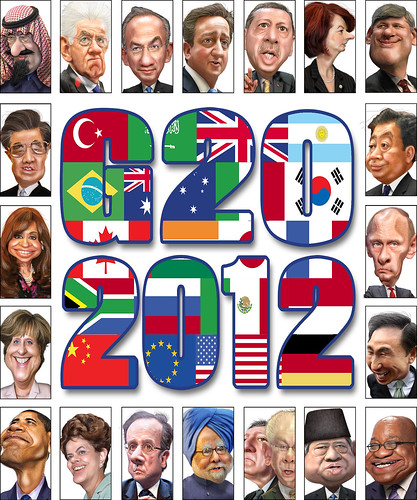
That international institutions may not be internally democratic in their workings has been known for some time and doesn’t appear particularly surprising. They are, after all, chiefly executive bureaucracies, and their most powerful members mostly like them that way. International legislatures have never lived up to the hopes of the nineteenth-century internationalists, and as the fate of the European Parliament and the UN General Assembly demonstrate, they are unlikely to make much of an impact in the twenty-first century.
What does seem novel, in historical terms, are two developments: the collapsing importance of the public bodies that give national sovereignty meaning, and the way that organs of international government and regulation have come to assail the internal legitimacy, capacity and cohesion of individual states. Democracies are not being turned into dictatorships—few people believe in dictatorships anymore—although the turn to Vladimir Putin in Russia suggests that such a drift is possible. But their representative institutions are being hollowed out and their capacity to act curtailed. Bodies that were once designed to foster sovereignty are now recast to curb it, and this is not merely the result of states deciding to join international organizations and respect their rules; it is the consequence of major changes in the rules themselves.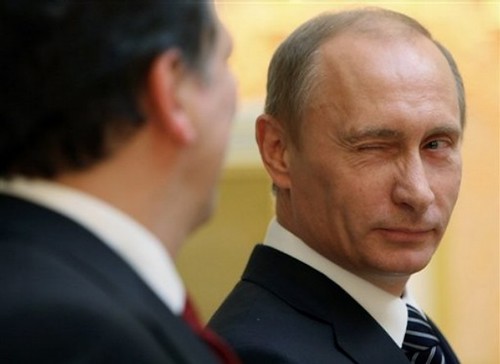
This multifaceted erosion of sovereignty is a momentous change, and it’s based on a radical alteration in attitudes toward the state and bureaucracy over the past thirty years. In its various nineteenth-century incarnations, internationalism was pre-eminently a movement to restore sovereign power to the peoples of the world and those who governed in their name. Its approach to the nation-state and its institutions was almost entirely positive. The originary moment of 1919 saw the goal of the League of Nations as a world made “safe for democracy,” a goal understood—in an imperial idiom—as a society of sovereign polities. After 1945, the United Nations promoted the creed of sovereignty more widely, more adamantly and more deeply. Nazism’s assault on the sovereignty of small nations was repudiated and, in Europe, democracy was restored, while colonialism’s denial of sovereign rights around the world was also castigated. The state was rendered sacrosanct; international boundaries were mutually recognized in Asia, Africa and Europe; and the meaning of democracy itself was broadened to promote, in the words of the UN Charter, “social progress and better standards of life in larger freedom.” International institutions enabled states to survive and flourish, and as the civil services expanded rapidly, states enabled their citizens to flourish as well.
In the construction of this system of sovereign nations, no power played a more important role than the United States. Washington never had complete control of the process, of course, and there were compromises on all sides. After 1945, welfare states grew faster and economic nationalizations went farther across the globe than American policy-makers might have wished, for example, while trade liberalization proceeded more slowly. But these points of disagreement and tension were not decisive. The American Century at its apogee coincided with the heyday of national planning in the third world and the welfare state in Europe. American foundations funded roads, medical services, libraries and schools, and American social sciences—from midcentury macroeconomics to modernization theory—provided legitimation for this expansion of state capacity around the world. Countries gradually became reintegrated into a global trade network, but capital movements remained restricted, and in general people made money from producing and exchanging goods rather than from money itself. As late as 1971, it was assumed that conditionality would not work if demanded by the IMF because client states would permit no interference in their internal affairs.
Between the mid-1970s and the early ’80s all of this changed, as the United States ceased to support a version of liberalism embedded in strong domestic institutions. Confronted with an unforeseen challenge to reshape the rules of the international order in a way that gave priority to the needs of the developing world—the third world’s New International Economic Order—the United States reacted by moving against the old midcentury conception of the enabling state on several fronts: international human rights activism saw the state as tyrant and mobilized global civil society against it; the World Bank and the IMF exploited the crisis-prone character of the new financialization of the world to redraw the boundaries of public and private sectors in vulnerable debtor countries. As governance replaced government, welfare nets frayed, and income and wealth inequality rose sharply. Formal structures disintegrated and informal economies—black markets, smuggling and crime networks—flourished, leaving only the ubiquitous concept of the “failed state” itself as implicit acknowledgment that states really were rather important. In turn, the threat of state failure rationalized invasions and occupations that returned swathes of Africa and parts of the Balkans to rule by international executive. This was in no sense a reversion to the emancipatory perspectives of mid-nineteenth-century internationalists but rather the crafting of a “leaner, meaner state” in one country after another across the world, dissolving society in the name of the individual, using international organizations as handmaidens and new paradigms—the efficient market hypothesis, the “responsibility to protect”—to provide intellectual rationalization.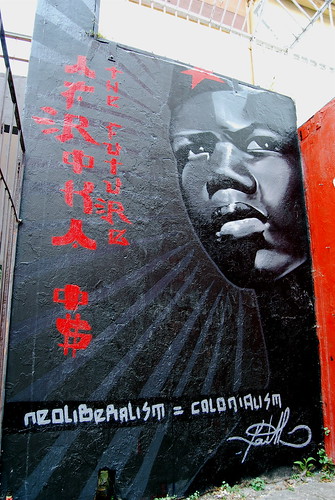
If the cumulative impact of this process on the idea of sovereignty hasn’t much bothered mainstream American observers, that is partly because it has been moralized and turned into something virtuous, and partly because it has happened less here than anywhere else. The United States remains the exceptional power, able more than any other over the past half-century to exempt itself from otherwise universally binding international commitments and obligations, its untrammeled sovereignty jealously guarded by Congress. Combining the language of universalism with the status of the exception has allowed American values and influence to spread at relatively little internal cost in terms of policy constraints. And this freedom has actually increased with the shift from a world of formal treaty obligations—a world that had always made Congress unhappy—to one of informal rules and norms, which the United Sates has been well positioned to craft. Only on the American right, burning with fears of eroding sovereignty and the implausible specter of world government, is there a glimmering of what the stakes may be when the American era finally ends.
In his 1991 bestseller The New World Order, for instance, televangelist Pat Robertson warned of the malign forces conspiring to take over the world in the name of virtue. A few years later, an apocalyptic thriller of the coming end times, the Reverend Tim LaHaye’s Left Behind, hit the bookshops, and it prominently featured the Antichrist in the shape of a handsome, articulate and charismatic young secretary general of the United Nations. Nicolae Carpathia is a man of violence masquerading as an apostle of peace, a ruthless Romanian who intends to use the UN to establish a global totalitarian dictatorship.
Some who particularly disliked the idea of a more powerful United Nations were reminded alarmingly of the prophecies of H.G. Wells. In his 1933 fantasy The Shape of Things to Come, Wells had foretold the eventual triumph of world government, calling it “manifestly the only possible solution of the human problem.” The book had described a decade-long war in Europe, a devastating plague and the near collapse of civilization—a lengthy descent into chaos that is only halted once an English-speaking Dictatorship of the Air smashes the world’s organized religions and establishes an era of worldwide stability. A few years later, as the war he had anticipated erupted in Poland, the British novelist called on readers to fight for the better future that a New World Order would usher in. “Countless people…will hate the new world order…and will die protesting against it,” Wells had written in the first months of the war. “We have to bear in mind the distress of a generation or so of malcontents.”
In the first US presidential campaign of the new millennium, right-wing candidate Pat Buchanan recalled these words: “Well, Mr. Wells,” he declared, “we are your malcontents.” Buchanan’s nationalism was extreme, as his 0.4 percent of the vote suggested. But even before the victory of George W. Bush, there was no mistaking the American public’s coolness toward the United Nations or the mauling given to international organizations whenever their funding was debated in Congress. The new president also turned his back rather publicly on his father’s multilateralism. “Thank God for the death of the UN,” wrote a Bush adviser, the neoconservative Richard Perle, in March 2003, as the bombs rained down on Baghdad.
More than the passing of time separates The Shape of Things to Come from the world of Tim LaHaye, Pat Buchanan and George W. Bush. The technocratic assurance of British imperial modernism forms a striking contrast to the libertarian anxieties of the fin de siècle American heartland. If one exudes confidence in the capacity of government and institutions to define problems and find solutions, the other sees in big government at home and abroad the always present threat of totalitarianism. To be sure, plenty of people in Wells’s day thought his ideas were farfetched—every bit as farfetched as most Americans find the talk of black helicopters and a New World Order engineered by a conspiratorial global elite. Since the tragic fiasco of Iraq, US foreign policy has returned to multilateralism, reluctantly during Bush’s second term and more decisively under Barack Obama. Yet the basic trajectory is real enough: we have moved from an era that had faith in the idea of international institutions to one that has lost it.
* * *
Beyond the borders of the United States, it has become far more evident that international institutions and norms have developed into a means of restricting sovereignty rather than enhancing it—a shift that has surely affected the standing of international bodies and undercut their ability to command continued support. The real-world challenges mount around us in the form of climate change, financial instability, poverty, crime and disease. With the WTO’s Doha Round paralyzed and the World Bank chastened, with the IMF incapable of helping to rectify the global imbalances that threaten the world economy and no single agency able to coordinate the response to global warming, the institutions of international governance stand in urgent need of renovation. Yet the fundamental nineteenth-century insight that effective internationalism rests on effective nationalism remains pertinent. Voters around the world still see their primary allegiance as being to their national state rather than any larger polity—a fact that reflects the continuing role of the state as primary purveyor of public goods, but that many international bodies are loath to acknowledge.
Now we are on the verge of a new era. As Western predominance approaches its end, the prognosticators speculate on what will come next and fret about the waning of American influence over the international system. Yet China in particular has much to gain and little of any consequence to lose from participating in a system designed from the outset to favor leading nations. Like any great power, it will use these institutions to further its own ends, and like its predecessors, it will not always prevail. There is no reason to think that a shift in the global balance need mark the end of the international institutions established in the Anglo-American ascendancy.
Indeed, from the perspective of the question of sovereignty, positive as well as negative consequences may emerge from the decline in American and European financial and political clout. As long ago as 1995, the British political economist Susan Strange argued that “the only way to remove the present, hegemonic, do-nothing veto on better global governance is to build, bit by bit, a compelling opposition based on European-Japanese cooperation but embracing wherever possible the Latin Americans, Asians, and Africans.” Although the prospective lineup now looks different, Strange’s point remains valid. The rising powers—China above all—have little liking for the IMF, at least in its older incarnation, and attach much greater importance to the idea of preserving sovereignty and some space for domestic political discretion. If their influence grows, the institutions the United States created may be brought back under new direction to the principles that originally animated them. A broader array of voices and perspectives will enrich the rather rigid forms of economic thinking that have predominated since the 1970s.
Getting the institutional architecture right is the subject of endless position papers and reform proposals. But there are two kinds of more fundamental change that will need to take place, too. In the current crisis, politicians have essentially acted as underwriters, necessary but still subordinate to the dictates of the financial market-makers whom they hesitate to contradict. More generally, politicians have become policy-makers who listen in the first place to private interests and their lobbyists and try to adjudicate among them. Time will show whether they are any longer capable of governing.
If they are not, the responsibility won’t be theirs alone. One of the reasons for the midcentury popularity of the state and sovereignty was that both had proved themselves in extreme circumstances. Twentieth-century total wars were fought by states that had mobilized entire societies around shared perils and experiences. By creating models of equity, solidarity and sacrifice, they transformed public attitudes in ways that endured into peacetime. Without a comparable transformation in our views about the nature of government, the public good and the role of the state, without developing a new kind of faith in our collective capacity to shape the future, there is no incentive for our politicians to change. They may not be trusted by their electorates—polls show levels of trust plummeting to new lows—but they have no reason to care so long as this lack of trust does not translate into mobilization, resistance and sustained pressure for reform.
For nineteenth-century internationalists, the future conjured up a new dispensation for humankind, a dispensation they looked forward to with a confidence based on their control over a universe of facts: hence Jeremy Bentham’s vision of a perfect system of law that depended on the accumulation of all useful knowledge, or Karl Marx’s path to a communist future through the history of capitalism’s past. To twentieth-century institution-builders from Jan Smuts to Franklin Delano Roosevelt, Robert Jackson to Walt Rostow, the future could be planned and tackled with foresight on behalf of entire communities and nations—perhaps even for the world as a whole. Today, when the primacy of the fact is challenged by the World Wide Web—a recent article hails the fact’s death—the future, more important than ever, has been privatized, monetized and turned into a source of profit. An entire corporate sector is dedicated to commodifying and modeling it; our financial markets in general take the future as the determinant of present values in a way that simply was not true a century ago. No one now feels the burden of an essential but unknowable future more acutely than the stockbroker and trader. But this money-driven individualistic future has crowded out an older vision of what the public good might look like.
In the ongoing atomization of society, citizens and classes have vanished as forces for change and given way to a world of individuals who come together as consumers of goods or information, and who trust the Internet more than they do their political representatives or the experts they watch on television. Governing institutions today have lost sight of the principle of politics rooted in the collective values of a res publica, even as they continue to defend the “civilization of capital.” As for the rituals of international life, these are well established. The world’s heads of state flock annually to the United Nations General Assembly. There are discussions of reform and grandiose declarations of global targets, which will mostly go unmet. Politicians, journalists, bankers and businessmen make their pilgrimage to the heavily guarded Alpine precinct of Davos, seeking to confirm through this triumph of corporate sponsorship that a global ruling elite exists and that they are members. Our representatives continue to hand over power to experts and self-interested self-regulators in the name of efficient global governance while a skeptical and alienated public looks on. The idea of governing the world is becoming yesterday’s dream.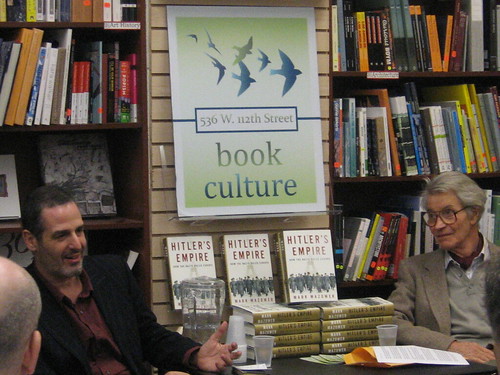
14.10.12
What Remains: On the European Union
Abonați-vă la:
Postare comentarii (Atom)
Destinatii
Postări populare
-
Republican presidential front-runner Donald Trump visited the editorial board of The Washington Post on Mar. 21. Here is audio of the ful...
-
Autor: D.I.A.. Toti oamenii de casa ai lui Adrian Nastase s-au adunat sa sarbatoreasca botezul fiicei multimiliardarului Adrian Petrache Pen...
-
La batranete neimplinita pe masura aspiratiilor incercam cumva sa recuperam timpul nefructificat? Punem pe piata ideilor teorii foarte specu...
-
Zbor deasupra unui cuib de cuci”. Atentate, vizite şi simboluri criptice de Ion Maldarescu Inceput de an împroşcat cu sânge. ...
-
În timpul documentării serialului „Prin cenuşa industriei", dedicat distrugerii unor fabrici de renume ale României comuniste, am au...
-
Victor a avut amabilitatea de a ne trimite spre publicare urmatorul text: Ani de zile m-am tot întrebat care este în folclorul nostru locul ...
-
Dmitry Orlov este un rus care traieste de cateva zeci de ani in SUA. Mai nou, el scrie despre experienta sa americana, mai ales din perspec...
-
Stereotipurile negative despre romani nu au aparut o data cu mass-media de sfarsit de secol XX. Sunt mult mai vechi. Un prim caz este cel al...
-
Data fiind istoria plina de "semnalizez la stanga si o iau la dreapta" a romanilor de la formarea statului te poti intreba care va...
-
Penitenciarul din Aiud. O sală mai degrabă austeră. O masă lungă, cîteva scaune şi fotolii. Este introdus Nicu Ceauşescu. Pare nesigur. I s-...
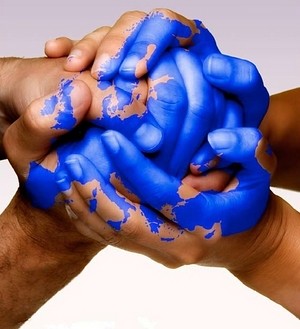




2 comentarii:
Without growth, Europe will unravel
If austerity measures leave Europe floundering in a Japanese-style recession for the next decade, all bets on pooled sovereignty are off. Photograph: Michael Probst/AP
'You never want a serious crisis to go to waste," Rahm Emanuel, Barack Obama's chief of staff, quipped in late 2008 as Wall Street descended into chaos in the waning days of the Bush presidency and the new administration prepared its response. Four years on, many influential figures in Europe feel the same way, judging from president of the European Commission José Manuel Barroso's widely discussed call this month for closer integration and "a democratic federation of nation states".
Europe's handling of the crisis to date has been nothing if not faltering and disjointed. According to a recent paper by economist Edwin Truman at the Washington-based Peterson Institute for International Economics, the lack of timely co-operation among members of the eurozone has led to a shortfall in world output of about $1.1 trillion, of which Europe itself has suffered $730 billion – more than 3% of its total GDP.
But what kind of opportunity has the sovereign debt crisis provided? The newly enhanced role of the European Central Bank has emerged as a firefighting measure, a means of damping down the flames and calming the markets. Beyond this, both Barroso and German chancellor Angela Merkel see the muddling through of the last two years as a prelude to a necessary longer term strengthening of European solidarity through new institutions and powers at the European level: a union-wide system of banking supervision to begin with; later, perhaps, some kind of European treasury or finance ministry, a greater pooling of border policing, and a leap forward to the kind of co-ordinated diplomacy that will allow the EU to punch at its weight on the international stage.
Of course, a large number of people in Europe will resist any further drift towards federation. To Eurosceptics, the new proposals simply confirm the omnipresent nightmare of a superstate in the making. They see both the commission and the German chancellery as embarked on a long-term power grab, and they have no time for Barroso's argument that, in the age of globalisation, pooled sovereignty means greater power for individual members. Indeed the nationalist response across Europe is to claim the opposite – to insist that both political virtue and economic interest demand a halt to integration and a reassertion of the powers of national legislatures.
They are perhaps half right. For Europe's dilemma is a historically unparalleled one. The intense pace of global financial integration during the last 30 years poses an acute political challenge. Can the members of the union, traditionally so wedded to their national institutions, keep these intact and remain globally influential? Not even the Germans would have the kind of standing they now enjoy if the union were to disintegrate.
So here is the rub. Economically, there can be little doubt that some sort of enhanced co-ordination is desirable for Europeans to prosper in a multipolar world. But politically, the likely outcome is a further shift in power from elected representatives to unelected technocrats and a further weakening of democracy; and greater powers for bankers at the European Central Bank and lawyers at the European court of justice – along with the civil servants in Brussels who interpret their judgments.
The 11 EU foreign ministers who last week put out a report on the future of Europe are alive to this danger. They want the European parliament to be consulted more, and they talk about improving democratic legitimacy. But they are short on ideas for doing this, and their proposal to streamline European decision-making by reducing member states' veto powers pushes further in the opposite direction. As for a powerful directly elected European president – another of their proposals – this might attract voter interest but would still be only tangentially connected to the political parties which dominate national politics.
The eurozone crisis has made this conflict between the logics of global economics and national politics emerge starkly. In the early years of the euro, electorates were willing by and large to pool sovereignty, and hence give up their right to be consulted, when the payoff was greater prosperity and mobility. But if austerity measures leave the continent floundering in a Japanese-style recession for the next decade, all bets are off. In such circumstances, with high levels of unemployment across much of southern and eastern Europe, electoral sentiment may move sharply away from Brussels and demand instead that their politicians protect their national economies.
In short, unless there is a plan for integration that prioritises recovery and growth, what we may end up with is not a Europe that is a "democratic federation of nation states" at all but a gradual unwinding of the entire integration process. A prospect to make some Eurosceptics rejoice, no doubt, but replete with dangers of its own.
Europeans thus have a tough choice to make: the historic preservation of their national institutions, or greater co-operation and derogation of powers. If, as the Dutch elections suggested last month, they would still mostly opt for the latter then the real argument becomes about the nature of the new institutions, their powers and the philosophy behind them.
This is where the battle is now joined – as François Hollande's pro-growth France battles Merkel's inflation-obsessed Germany, and Mario Draghi's European Central Bank tussles with the German Bundesbank. It is the critical struggle for anyone concerned with the preservation of the European model of social welfare. What a sad commentary on the state of British diplomacy that what David Cameron's government thinks about this remains entirely irrelevant.
Trimiteți un comentariu